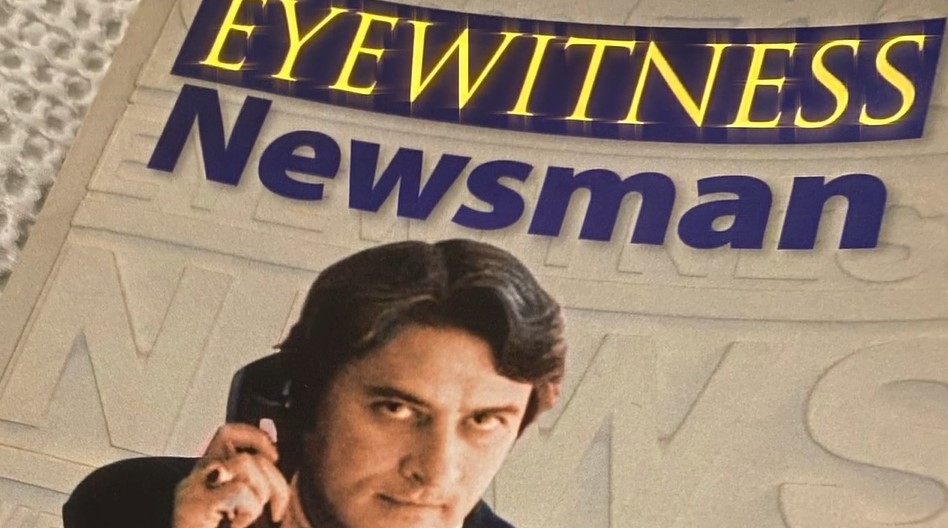 Veteran news talent executive Mendes Napoli has been finding talent for stations for years after serving in the trenches himself. Among the trends he sees in local news are a return to investigative reporting and a movement “to give perspectives to stories that one doesn’t get on a headline on a Yahoo homepage.”
Veteran news talent executive Mendes Napoli has been finding talent for stations for years after serving in the trenches himself. Among the trends he sees in local news are a return to investigative reporting and a movement “to give perspectives to stories that one doesn’t get on a headline on a Yahoo homepage.”
Demand Rising For Enterprise TV Reporting
As head of one of the top broadcast talent firms in the country — and a veteran newsman himself — Mendes Napoli has been consumed by the local TV news business for 40-plus years.
Before creating Los Angeles-based Napoli Management Group in 1993, he spent 23 years in television station and news management positions. He served as VP of news for KSTP Minneapolis-St. Paul and, before that, as Scripps Broadcasting’s VP of news. He spoke with TVNewsCheck’s Diana Marszalek about where the industry stands, its future — and where talent fits into all of it.
An edited transcript:
We have talked about the local TV news industry being in the throes of this big transformative time since at least 2008. Have we arrived at whatever this new place is yet?
A lot has happened since then, but I don’t think it’s over. When we were in ’08 we were all concerned about economics, about how the whole picture has changed. You start with the ownership. It’s quite different now with consolidation, and the synergy that will provide different organizations. It’s a multi-screen platform. And I don’t view it as all bad. It can really lead to some significant focus on content.
In the meantime, people who produce news realize there’s a big market for news and the importance of producing content seems to be rearing its head more and more.
How is that realization taking shape on-air?
There is a movement to return to our roots, which is producing content on topics that people want to know about. There is a big push on investigative, we hear more than ever. And there also is a commitment to dig deeper into a particular story. There is a movement afoot to give perspectives to stories that one doesn’t get on a headline on a Yahoo homepage.
How do those changes affect on-air talent and what stations expect of them?
I still work on the same premise that I’ve worked on for 40-some years: that people still want to get the news from people they trust. We still prefer to have the news delivered to us by people who are comfortable with us and people telling us the truth.
How does a reporter or anchor develop that sort of a relationship with viewers?
I think it starts with good storytelling and factual reporting. We are not talking cable. We’re not talking about Fox or MSNBC. We are talking about good traditional news — stories that are of interest and relevant on a local level. People still want to know what’s going on in their communities. I still think people in many local markets, once you get outside the big cities, still have a reliance on local news.
Is local news still driven by personalities or have gizmos like fancy weather systems become the stars of the show?
I’d say all of that. If you look at morning television, weather and traffic emerge as strong components. But then some of the shows have more personality and more fun that mixes in and that resonates with people. So you still have a big reliance — particularly in the morning — on personality and credibility.
So part of the challenge of your job goes beyond matching personalities with stations, it boils down all the way to particular newscasts. That’s tough because there are a lot out there.
We try and we try to collect as much information from the organizations, first to understand what they are looking for. We are not some place that randomly sends a lot of people [for job openings]. We have a good sense of what people are looking for. We, as an organization, fan out all day long to bring in a great deal of information and we send people to those openings that we think work. They are all different.
Are candidates’ gender and ethnicity still considered in hiring?
There still is — and has always been — a demand for minorities, and there is a demand for good men right now. There are not a lot of new, younger men coming through the system and that’s been a trend for a long time. A lot of college men are geared in other directions.
Is TV news still a field that’s attracting young people and is there a future in it for them?
We have seen some amazing young people coming out of school, and that to me is very encouraging. They take the traditional route. They go to a small market and work their way up and up.
There are jobs. In the last few years the numbers have been quite a bit higher.
I think if you are interested in this craft you have to really, really want to do this. You are going to start as a multimedia journalist shooting your own stuff. You are going to be a master of all when you start and a good storyteller using all the tools.
Are salaries an issue in pursuing careers in the field?
I don’t know the answer but salaries are more difficult. They definitely have come down. The number of high-ticket people [earning $500,000 and up] working in television news is probably lower than in quite a few years. There are jobs like that but there aren’t many.
Have contracts themselves become more complex to reflect changes in the industry and technology? Do they now address issues like who is supposed to tweet what?
The social media stuff is just starting to creep into the contracts, but we haven’t seen it clearly delineated. Most of the contracts are the same templates that have been out for a while.
On the flip side, we started seeing stations begin to hire talent with no contract at all. Is that still going on?
We don’t deal with that. We placed 122 people last year and they all had a contract.
As the industry changes, and stations start to experiment with different news formats, I wonder if there are any particular members of local news teams — traditional anchors, sportscasters — that could wind up on the endangered species list?
Not on air. Sportscasters had been an endangered species for years but they seem to survive just fine now. There is some reinvention where sports guys are becoming more personality oriented and doing more interesting presentations for their viewers.
But the bottom line is that many people are still in their local markets. If you are in Indianapolis or Columbus, these people are still our celebrities. People may not watch as much as they used to but they still know and like these people. Even in LA, you will see a celebrity go up to an anchor and say, “I know who you are.”
Read other Air Check columns here. You can send suggestions for future Air Checks to Diana Marszalek at [email protected].


























Comments (0)